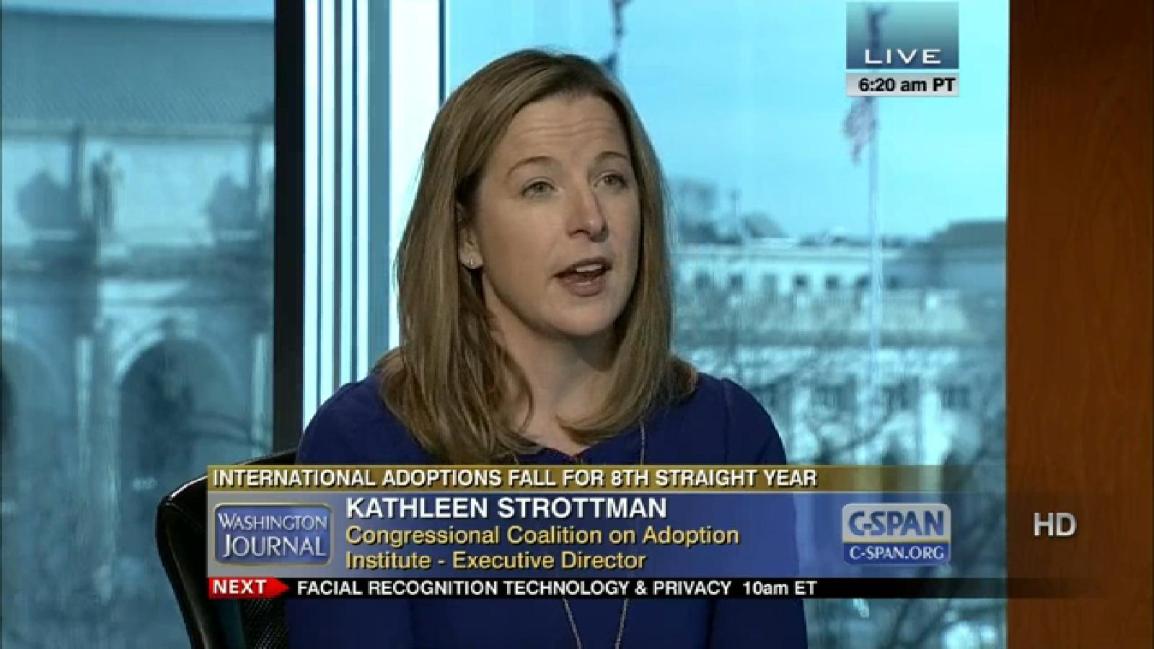Late last night, the United State Senate unanimously passed S. Res. 628, a resolution expressing the body’s disappointment over the recent passage of a Russian law banning the adoption of Russian children by American citizens. This resolution, the most recent step in a long series of actions taken by Members of Congress, expresses the Senators’ deep concern with the law, which would deprive a significant number of Russia’s 740,000 institutionalized children their chance of finding a permanent, loving family.
“Given the immensity of the challenges facing the Russian government, one would think they would be taking every possible action to decrease the number of Russian children living without families,” said Kathleen Strottman, Executive Director of the Congressional Coalition on Adoption Institute (CCAI). “Sadly, it is the Russian children, many of whom have spent their entire childhood in institutions, who will suffer the most because of this law.”
The Congressional Coalition on Adoption Senate Co-chairs, Senator Mary Landrieu (D-LA) and Senator Jim Inhofe (R-OK), echoed Strottman’s sentiments.
“Whatever issues our two governments may be facing, there is no political reason to put vulnerable children in the middle of political posturing,” Landrieu said. “Children should be raised by parents, not in orphanages, institutions or alone on the street.”
“It is extremely unfortunate and disheartening that the Russian Duma and President Putin would choose to deprive the children, the very children that they are entrusted to care for, the ability to find a safe and caring family that every child deserves,” Inhofe said. “As a grandparent of an internationally adopted child, I know that this new law is against the interests of the Russian people, in particular Russian children. The law continues the disturbing anti-American trend that has been taking place in Russia for the past several years. It is nothing more than a political play against the United States that ultimately leads to greater hardships and more suffering for Russian children who will now be denied a loving family.”
Since learning of the possible ban, CCAI has been deeply engaged in supporting this and other opposition efforts by Members of Congress. Earlier this month, CCA Members of Congress sent a bi-partisan letter to President Putin urging him to veto the legislation. “We fear that this overly broad law would have dire consequences for Russian children,” they wrote. “Nothing is more important to the future of our world than doing our best to give as many children the chance to grow up in a family as we possibly can.”
Now that the ban has been enacted, CCAI continues to work with the State Department and Members of Congress to urge the Russian government to grant clemency for cases already in progress. In situations like these, CCAI’s priority is to ensure that US government officials are not only aware of the personal circumstances of all American families directly impacted but also have the information necessary to effectively advocate on their behalf. CCAI strongly encourages families that are affected to accommodate the State Department Office of Children’s Issues request for information regarding where they are in the adoption process. The State Department has requested that families email Russiaadoption@state.gov with the subject line: “Intercountry adoption in Russia – family update.”
 On Saturday, CSPAN’s Washington Journal interviewed CCAI Executive Director, Kathleen Strottman, about the Russian adoption ban, international adoption, and how Members of Congress can affect adoption and foster care issues. Click on the picture to watch the full interview or follow this link: http://www.c-spanvideo.org/program/310768-5
On Saturday, CSPAN’s Washington Journal interviewed CCAI Executive Director, Kathleen Strottman, about the Russian adoption ban, international adoption, and how Members of Congress can affect adoption and foster care issues. Click on the picture to watch the full interview or follow this link: http://www.c-spanvideo.org/program/310768-5


